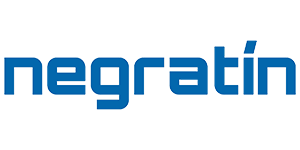
Cargando

Cargando

Good management of information and related data is an essential element in enabling a business to grow. It is even more important in the construction sector, since a large number of factors are involved in each project which must be planned and coordinated effectively if the project is to be properly executed within the set deadlines.
Companies involved in this sector must have an organized and up-to-date data structure to streamline decision-making and help anticipate potential difficulties and delays that may affect the development of their projects.
The aim of the Discovery digital diagnosis developed by Foqum is to conduct a thorough analysis of a company's data by specific area (operations, finance, sales, etc.) covering the entire life cycle of that data, from collection to processing and display, including the study of each of the decision-making processes in order to make them automatic, consistent and measurable.
Unsure where to begin, which projects to tackle, what equipment you need, what cost is involved, and how to plan your digital transformation investment?
Discovery is designed to answer such questions by identifying specific opportunities for improvement, ensuring quality criteria are met and improving the automation and consistency of decision-making.

Negratín, a specialist company in the development of turnkey projects in sectors such as energy, industry and installations operating simultaneous projects in different continents requires maximum efficiency and coordination in its planning processes, recruitment of personnel, acquisition and transportation of materials, etc.
The diversity of projects it performs and the variability of the conditions under which it operates means it must have a solid structure and proper information management to enable it to control the status of projects in execution, coordinate adequately between departments and ultimately make decisions in a streamlined and effective manner.

Foqum conducted a comprehensive analysis of data flows in four areas encompassing eleven internal business processes of the company, identifying specific opportunities for improvement.
As a result, 10 projects were identified with diverse objectives such as (i) unifying the different data sources; (ii) improving the on-site monitoring and traceability systems; (iii) increasing the level of automation of information intake and decision-making; (iv) identifying business opportunities; and (v) optimizing the performance of two key processes in the company.

Remember: we cannot improve what we do not measure.
CONTACT US BOOK A STRATEGY MEETING